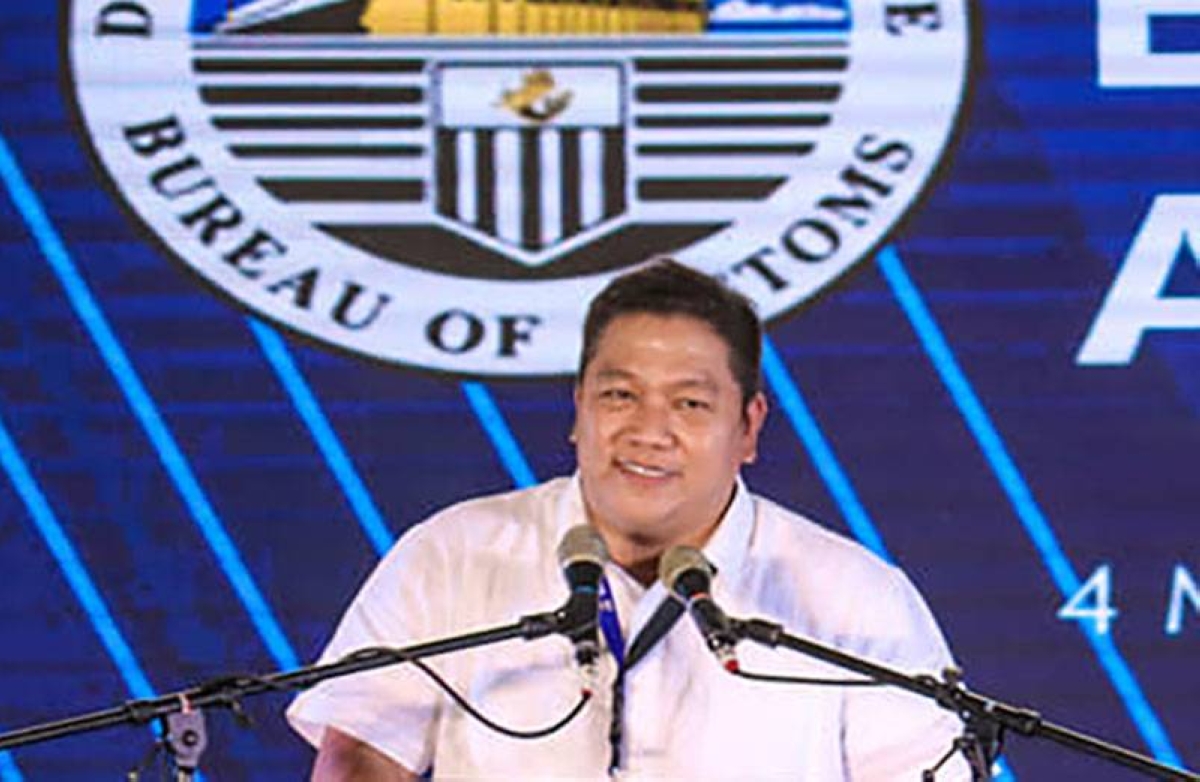Customs sets tariff guidelines under RCEP
THE Bureau of Customs (BoC) has issued the guidelines for the implementation of preferential tariffs on imported goods under the newly implemented Regional Comprehensive Economic Partnership (RCEP) agreement.
Customs Commissioner Bien Rubio issued Customs Memorandum Order (CMO) 12-2023, providing the specific procedures for the issuance and acceptance of the certificate of origin for the grant of preferential treatment under the RCEP agreement.
 |
| Customs Commissioner Bien Rubio. Photo from Bureau of Customs |
The CMO was dated May 26 but it took effect last June 2, when the RCEP agreement entered into force in the Philippines.
The 15 signatory countries to the agreement are the Philippines, Indonesia, Thailand, Malaysia, Singapore, Brunei, Cambodia, Laos, Myanmar, Vietnam, China, Japan, South Korea, New Zealand and Australia.
The BoC said the trade pact aims to eliminate tariffs on a minimum of 90 percent of the commodities traded between the member countries, and strengthens regulations for non-tariff measures.
The bureau noted that within the trade agreement, the Philippines retained existing preferential tariff rates for 98.1 percent of the 1,718 agricultural tariff lines, as well as for 82.7 percent of the 8,102 industrial tariff lines.
Out of the 1,685 agricultural tariff lines that are being preserved at present rates, 1,426 will be maintained at a zero rate, while 154 will continue to be charged at their existing most-favored nation rates, and will therefore not be included in any form of tariff concessions, according to the BoC.
"In cases where the RCEP preferential tariff rate is higher than the applied rate at the time of importation, the importer shall be allowed to apply for a refund of any excess duties and taxes paid for originating goods," it said.
Under the agreement, the certificate of origin must be with the goods being transported among member countries.
The document will allow customs authorities, importers and exporters to monitor the movement of goods within the RCEP bloc.
To qualify for RCEP tariff rates, importers must obtain this certification along with a declaration of origin from exporters who have been authorized by the Philippines, as specified by the BoC.
The BoC tasked its Export Coordination Division (ECD) to scrutinize all submitted certificates of origin and applications for Approved Exporter status.
"The ECD shall carry out verification of the originating status of the goods upon request of the RCEP-importing party or based on risk-analysis criteria.
"Verification can be made through the documents requested from the exporter or producer or by inspection at the exporter's or producer's premises," the CMO read.
The BoC, however, clarified that the final determination on the rate of duty shall be based on the assessment of the submitted documents from the importers.
Exporters must submit an application with the ECD for the issuance of a Certificate of Origin for RCEP.
The application shall include all necessary supporting documents such as an export declaration, commercial invoice, bill of landing/airway bill, and other relevant permits.
Related News

Opportunity for Vietnamese goods as Switzerland scraps tariff on industrial product imports
14:09 | 18/01/2024 Import-Export

Taking advantage of EVFTA: "It's impossible for everyone's house to shine brightly"
13:48 | 01/12/2023 Import-Export

The special preferential import tariff for the implementation of the RCEP Agreement includes 11,414 tariff lines
18:29 | 06/05/2023 Regulations

Tariff for implementation of AIFTA: Vietnam to eliminate 65% of import tariff lines
10:55 | 01/05/2023 Regulations
Latest News

Dutch customs seize 1,575 kilograms of cocaine at Vlissingen Port
10:32 | 10/12/2024 World Customs

Taiwan-Canada customs agreement signed - Taipei Times
14:21 | 09/12/2024 World Customs

Sabah Customs foils bid to smuggle 3,000 cartons of liquor
13:46 | 28/11/2024 World Customs

The Philippines Pioneers Corruption Risk Mapping to Strengthen Integrity and Trade Facilitation in Customs
13:41 | 23/10/2024 World Customs
More News

US customs clamps down on vague cargo descriptions
09:38 | 27/09/2024 World Customs

Uzbekistan Signs Customs Agreement With U.S.
09:02 | 26/09/2024 World Customs

Hong Kong customs seizes B42.5m of smuggled platinum, its largest haul in 20 years
09:02 | 26/09/2024 World Customs

Customs Affairs conducts training programme for OFOQ2 Single Window System
13:15 | 16/08/2024 World Customs

Abu Dhabi Customs equips sea customs centres with five advanced inspection devices
14:20 | 15/08/2024 World Customs

Customs rules get stringent at Singapore
14:20 | 15/08/2024 World Customs

Sabah Customs seizes over RM600,000 worth of drugs
10:16 | 09/08/2024 World Customs

Hong Kong customs to use AI to check 6,000 digital images in seconds for crime-fighting boost
14:43 | 07/08/2024 World Customs

Hong Kong customs seizes HK$5.8 million of heroin hidden among durians
16:05 | 05/08/2024 World Customs
Your care
The system has not recorded your reading habits.
Please Login/Register so that the system can provide articles according to your reading needs.

Dutch customs seize 1,575 kilograms of cocaine at Vlissingen Port
10:32 | 10/12/2024 World Customs

Taiwan-Canada customs agreement signed - Taipei Times
14:21 | 09/12/2024 World Customs

Sabah Customs foils bid to smuggle 3,000 cartons of liquor
13:46 | 28/11/2024 World Customs

The Philippines Pioneers Corruption Risk Mapping to Strengthen Integrity and Trade Facilitation in Customs
13:41 | 23/10/2024 World Customs

US customs clamps down on vague cargo descriptions
09:38 | 27/09/2024 World Customs
